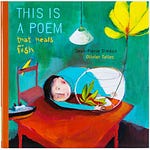Writing is a complex process involving working memory and executive functions. I'll dedicate some space to explain the executive function because it is essential to understand.
You already know that the brain in and of itself is an extremely complex organ and consists of several different parts. Executive function is the brain's management system and develops very quickly in early childhood and into the adolescent years and continues to do so into the mid-20s.
It also helps us pay attention, organise, plan, and prioritise, thereby providing the impetus to start a task and sustain the needed focus on seeing it through to completion. In regulating emotions, the executive function also helps us understand different points of view and provides self-monitoring.
In order to accomplish all these tasks, we need to use our working memory. Working memory is like the cache on a computer, sort of an interceptor between the CPU and the RAM. It helps retain new information to use it in some way before sending it away into long-term memory.
As adults, it might seem that there’s no 'big' deal to how children operate in their environments. It should be a seamless progression that just happens; remember, it is never that straightforward. Some children do have impairments that lead to certain types of difficulties. Suppose a child exhibits problems with executive function; in that case, you will notice there is also difficulty focusing, following directions, and handling emotions, among other things.
In this post, I'll discuss how writing might be a place of great strife for children with executive function disorders. If you've missed my previous posts on reading, then you can click on the link here.
Photo by National Cancer Institute on Unsplash
Written expression requires several skills to come together. The first on that list is reading comprehension. More about that here.
The second on the list is transcription. For effective transcription, children need to cover the skills of spellings and handwriting. There are several ways in which children struggle with transcription, such as awkward or illegible handwriting. Others might be able to write legibly but will have difficulty spellings words and will not perform without support.
The third on this list is sentence construction. While this is a challenge even for a good writer, children with writing difficulties struggle with using the correct sentence structure. They have trouble distinguishing between nouns and verbs, complete and run-on sentences, statements and questions.
The fourth on the list is genre and content knowledge. Again, the lack of adequate training can cause a child with no difficulties to perform poorly in this area. However, it becomes more complicated for a child with writing specific difficulties because one needs to distinguish between different types of writing, such as narrative and argumentative.
Content knowledge requires that the writer supply the right information based on the assigned task and choose the appropriate vocabulary to enhance the written work.
Finally, the process of revising, editing and proofreading requires the use of the executive functions, especially since it requires a fair amount of focus.
As you can see, writing requires shifting among tasks that include generating ideas, thinking of words and word meaning, organising good sentences, planning, and self-monitoring—all of them require executive functions.
Challenges with any of the basic language or motor skills or in the executive functions required to combine reading comprehension, transcription, and various necessary subskills to write will result in problems in written expression if your child experiences writing difficulty.
So what should you do as a parent to help your child succeed in writing? You can read that in my next week's blog.










Share this post